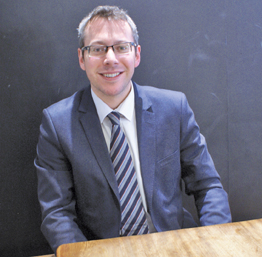A scheme to combat employment fraud has given free advice to over one million job seekers. SAFER Jobs was set up by the Metropolitan Police’s Fraud and Linked Crime Online (FALCON) unit in 2008, in an effort to combat bogus employers defrauding people out of hundreds of pounds, pretending to offer paid work. SAFER Jobs has become a registered charity working with the private and public sector.
Supported by the Department of Work and Pensions, City of London Police and others, it promotes what people should look out for when applying for jobs, including any ‘red flags’ that may indicate that their supposed employer is not legitimate. It also shares information with job boards and recruitment companies to encourage a safer job search.
While SAFER Jobs has seen a large rise in job seekers and agency workers requiring help, over the last four years reported actual offences have declined. A spike in 2015-16 of 1,068 offences has since fallen to 792 reported offences in 2016-17; a 26pc drop in actual offences.
This follows a recent call by the Minister for Employment, Damian Hinds, who urged recruitment companies and job boards to do more in tackling fraudulent recruiters.
Detective Superintendent Neil Ballard, who leads the Met’s FALCON unit, said: “The Met is committed to working in collaboration with external partners to protect people from becoming victims of fraud. The work of SAFER Jobs is a prime example of this aspiration being realised; fraud can have a significant impact on those people who find themselves suffering at the hands of callous and cruel offenders. Employment fraud is a crime that exploits an individual’s desire to find paid work. The impact is not only financial but also psychological after their relief of finding what they believe to be honest employment is shattered and they have had to pay for the opportunity. We see its effects. SAFER Jobs can and will continue to do more to prevent this from happening and empower more people to know what to look out for when searching for work.”
Detective Chief Inspector Andy Fyfe, of City of London Police, said: “Employment fraud can have a major impact on victims, both financially and psychologically. To this end, the work of SAFER Jobs is crucial in educating the public. We would urge those who believe they have become a victim of employment fraud to report it.”
And Keith Rosser, pictured, Chair of SAFER Jobs, said: “Recruitment fraud takes many guises including paying for background checks, identity theft, premium rate phone interview scams, and even human trafficking and modern slavery. The public can fall for fake jobs advertised online or they can even be ‘head-hunted’ by criminals finding their profiles or CVs online. We are proud of the impact we have had, but there is still so much more to do to prevent job seekers from falling victim to fraudsters.”
Some tips
Never part with money – employers should pay employees, not the other way round. Someone should be suspicious if asked to pay for any fees upfront for security checks, visas or training.
Never phone the company for an interview – premium rate phone scams are common. This is where an individual calls a pay-for number thinking it’s an interview, when actually they are paying for every minute they stay on hold.
Never provide personal details – bank account details, National Insurance number, date of birth, driving licence or utility bill information – that are not relevant to an application process. Such information should also not be included in a CV.
Visit https://www.safer-jobs.com/.










